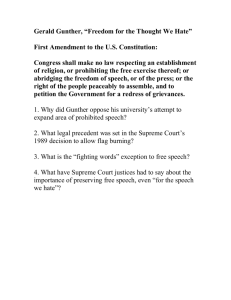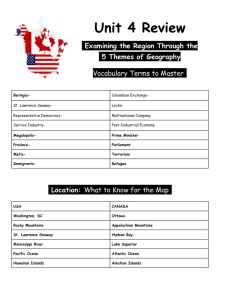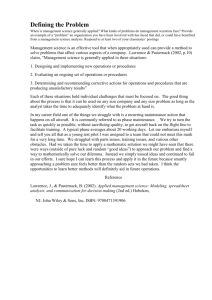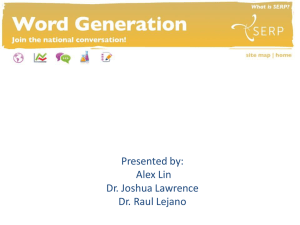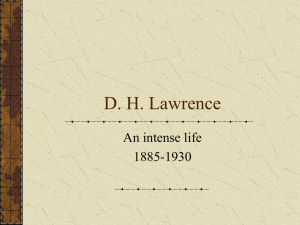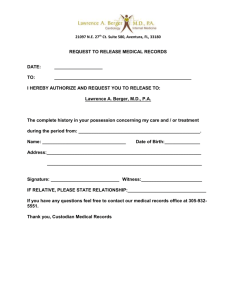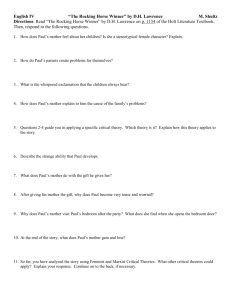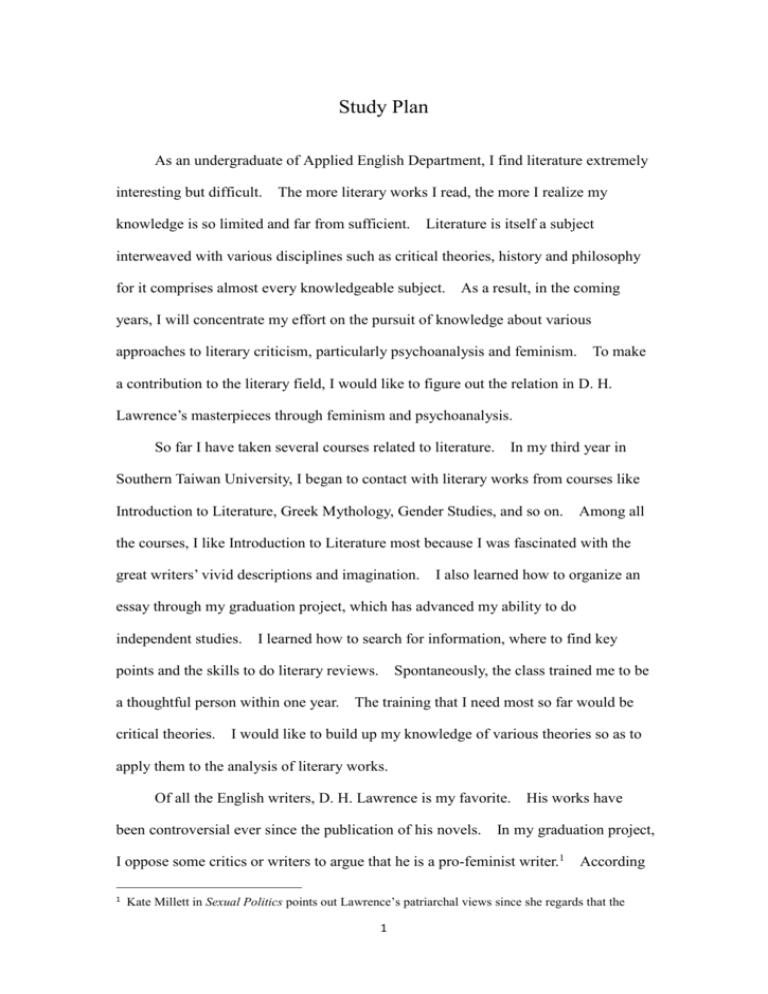
Study Plan
As an undergraduate of Applied English Department, I find literature extremely
interesting but difficult. The more literary works I read, the more I realize my
knowledge is so limited and far from sufficient.
Literature is itself a subject
interweaved with various disciplines such as critical theories, history and philosophy
for it comprises almost every knowledgeable subject.
As a result, in the coming
years, I will concentrate my effort on the pursuit of knowledge about various
approaches to literary criticism, particularly psychoanalysis and feminism. To make
a contribution to the literary field, I would like to figure out the relation in D. H.
Lawrence’s masterpieces through feminism and psychoanalysis.
So far I have taken several courses related to literature.
In my third year in
Southern Taiwan University, I began to contact with literary works from courses like
Introduction to Literature, Greek Mythology, Gender Studies, and so on.
Among all
the courses, I like Introduction to Literature most because I was fascinated with the
great writers’ vivid descriptions and imagination.
I also learned how to organize an
essay through my graduation project, which has advanced my ability to do
independent studies.
I learned how to search for information, where to find key
points and the skills to do literary reviews. Spontaneously, the class trained me to be
a thoughtful person within one year. The training that I need most so far would be
critical theories.
I would like to build up my knowledge of various theories so as to
apply them to the analysis of literary works.
Of all the English writers, D. H. Lawrence is my favorite. His works have
been controversial ever since the publication of his novels.
In my graduation project,
I oppose some critics or writers to argue that he is a pro-feminist writer.1
1
According
Kate Millett in Sexual Politics points out Lawrence’s patriarchal views since she regards that the
1
to some contexts from “The Horse Dealer’s Daughter” and “The Woman Who Rode
Away,” D. H. Lawrence is a feminist because his female characters have strong
self-awareness toward their love and life.
Furthermore, in both short stories,
Lawrence focuses on the lives and visions of women and succeeds in depicting their
transformations.
In addition, the subjectivity of the female protagonists in Lawrence’s novels
challenges the ideas of his predecessors in the nineteenth century.
the female protagonists reveal their desire for love and knowledge.
In both stories,
These two
seemingly traditional women show their adverse attitudes toward the conventional
society.
Hence, the conflicts and struggles which these two controversial figures
suffer from actually demonstrate Lawrence’s pro-feminist view.
I deeply believe that National Chi Nan University is known for its excellent
faculty and its satisfying quality of education.
After the completion of my college
life, I would like to go further in the field of literature.
I have studied carefully the
curriculum offered at NCNU, which definitely will enhance my research ability,
knowledge and expertise.
In short, I am looking forward to being a member in
NCNU.
Works Cited
inferior characteristics of women in Lawrence symbolize his preference for patriarchy (260). Karyn
Riedell thinks that Lawrence’s fiction “calls for a revolutionary movement to restore male supremacy”
(333). Such statements likewise reinforce the image of Lawrence as an anti-feminist.
2
Millett, Kate. “D. H. Lawrence.” Sexual Politics. Garden City: Doubleday, 1970.
237-93.
Riedell, Karyn, Rev. of D. H. Lawrence and feminism by Hilary Simpson.
English Literature in Transition 26(1983):331-34.
Bibliography
Albright, Daniel. Personality and Impersonality: Lawrence, Woolf, and Mann.
Chicago: U of Chicago P, 1978.
Burns, Aidan. Nature and Culture in D. H. Lawrence. Totowa: Barnes and Noble,
1980.
Daiches, David. The Novel and the Modern World. Chicago: U of Chicago P,
1960.
Draper, R. P. “The Defeat of Feminism: D. H. Lawrence’s The Fox and “The
Woman Who Rode Away.” Ed. Dennis Jackson and Fleda Brown Jackson.
Critical essays on D.H. Lawrence. Boston: G.K Hall, 1988. 158-69.
Feinstein, Elaine. Lawrence and the Women: the Intimate Life of D. H. Lawrence.
New York: HarperCollins, 1993.
Kermode, Frank. D. H. Lawrence. New York: Viking, 1973.
Lawrence, D.H. The White Peacock. Carbondale: Southern Illinois UP, 1966.
---. Sons and Lovers. New York: Signet, 1913.
---. The Rainbow. New York: Modern Library, 1915.
---. Aaron’s Rod. Ed. Mara Kalnins. Cambridge: Cambridge UP, 1988.
---. Women in Love. London: Martin Secker, 1921.
---. The Plumed Serpent. London: Martin Secker, 1926.
---. Lady Chatterley’s Lover. New York: Pocket, 1959.
---. Kangaroo. Ed. Bruce Steele. New York: Cambridge UP, 1994.
3
---. The Collected Letters of D. H. Lawrence. Ed. Harry T. Moore. New York: Viking,
1962.
---. “The Horse Dealer’s Daughter.” Selected Short Stories. Harmondsworth:
Penguin, 1982. 259-73.
---. “The Woman Who Rode Away.” Selected Short Stories. Harmondsworth:
Penguin. 1982. 391-423.
Leavis, F. R. D. H. Lawrence: Novelist. New York: Knopf, 1956.
Moore, Harry T. D. H. Lawrence: His Life and Works. Rev. Ed. New York: Twayne,
1964.
Moynahan, Julian. The Deed of Life: The Novels and Tales of D. H. Lawrence.
Princeton: Princenton U P, 1963.
Murry, John Middleton. D. H. Lawrence: Son of Woman. London: Jonathan Cape,
1954.
Nin, Anais. D. H. Lawrence: An Unprofessional Study. Chicago: Swallow, 1964.
Nixon, Cornelia Lawrence's Leadership Politics and the Turn Against Women.
Berkeley: U of California P, 1986.
Roberts, Warren. A Bibliography of D. H. Lawrence. London: Rupert Hart- Davis,
1963.
Sagar, Keith. The Art of D. H. Lawrence. Cambridge: Cambridge UP, 1966.
Schorer, Mark. D. H. Lawrence. New York: Dell, 1968.
Simpson, Hilary. D. H. Lawrence and Feminism. De Kalb: Northern Illinois U P,
1982.
Spilka, Mark. The Love Ethic of D. H. Lawrence. Bloomington: Indiana U P, 1955.
Stoll, John E. The Novels of D. H. Lawrence: A Search for Integration. Columbia: U
of Missouri P, 1971.
Siegel, Carol Lawrence Among the Women: Waving Boundaries in Women’s Literary
4
Traditions. Charlottesville: U P of Virginia, 1991.
Van Ghent, Dorothy. The English Novel: Form and Function. New York: Harper,
1953.
Williams, Raymond. The English Novel From Dickens to Lawrence. London: Hogarth,
1984.
5

